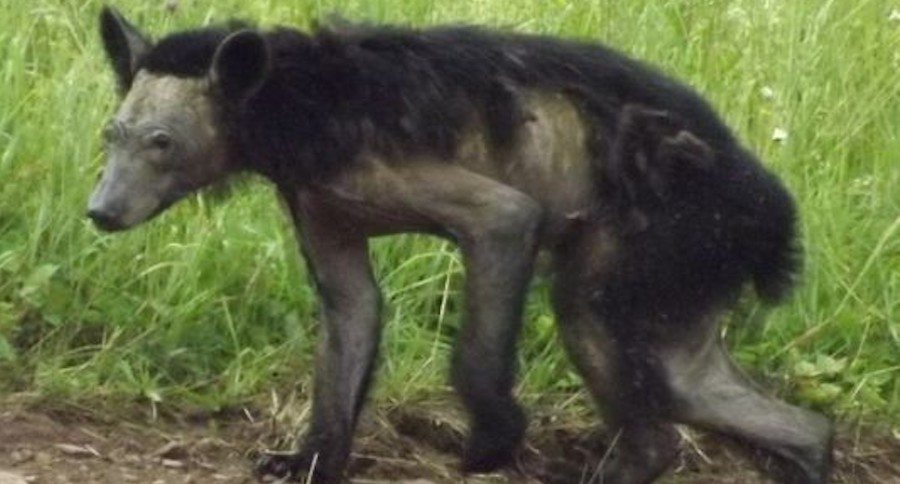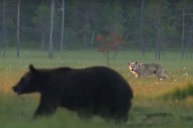The world-famous Pennsylvania bear population might be in trouble.
Well, it's getting warmer, which means bugs are out and about in big numbers. Unfortunately for a lot of wild animals, that means mites can all of a sudden become a big problem. In the case of mange, caused by burrowing mites in an animal's flesh, there can be total hair loss. You might remember pictures of mangey coyotes the Internet loves to call the illusive "chupacabras." If you saw a mangey bear in Pennsylvania, though, you might think it's a werewolf.
Get ready for pictures just like the above to fill your screens come Halloween, though, because the Pennsylvania bear population has got mange, bad.
"Different species of skin mites can be found in other states, but this severe outbreak of sarcoptic mange is a unique Pennsylvania situation," said leader researcher Erika Machtinger, a certified wildlife biologist familiar with the situation in an interview.
If scientists can't get this under control, some bears may have a hard time making it through the winter. As of now, wildlife officials are monitoring the situation. However, they continue to gather information to figure out exactly what to do.
"Over a two-year period we'll see how many of those bears' mange cases resolve on their own, how many resolve with treatment, and how many bears come down with mange," Machtinger said in another interview. "That should give us an idea of how mange affects denning and potential reproduction, and that ultimately should show how mange actually is affecting the bear population. We'll also see how mange may affect bear movement, home range size, and use of human habitats."
NEXT: KILL ORDER ISSUED FOR BROWN TROUT ON THE KOOTENAI RIVER IN MONTANA
https://rumble.com/embed/u7gve.v3tq0x/




